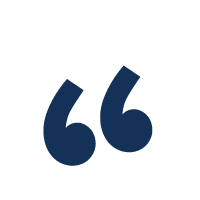Collaboration Skills and Their Importance
What Are Collaboration Skills?
Why Are Collaboration Skills Important?


“Alone we can do so little; together we can do so much.”
– Helen Keller

What Does Collaboration Look Like in Daily Life?
Collaboration is contributing to group decisions. Your voice and opinions matter when making decisions. If you’re discussing with friends where to go out for dinner, suggest one of your favourite restaurants!
Collaboration is encouraging your team members to share ideas. Asking your team questions and listening attentively to their answers can help you learn new perspectives and ways of doing things. Their ideas might be just the thing you need to overcome a challenge or problem.
Collaboration is respecting the feelings, views, and values of other team members. Listen to others when they are sharing their feelings with you. Demonstrate that you are trustworthy by avoiding gossip, teasing, or other disrespectful behaviours.
Collaboration is freely sharing information with team members. Collaboration doesn’t work if you know something others don’t. Freely sharing with others helps keep everyone on the same page. If you’re working on a group assignment and you learn the deadline was extended, you’d immediately tell your team mates the good news!
Collaboration is being positive and encouraging. Letting your teammates know they’re doing a good job is a great way to keep everyone motivated. This can help your team to be productive and complete tasks on time or ahead of schedule.
Collaboration is quickly addressing issues or problems. Dealing with problems or issues in a timely manner helps keep your relationships positive and free of potential resentment. Working collaboratively can be difficult, but it will be easier if interpersonal problems are handled in a positive way.
Some Additional Thoughts on Collaboration

Collaboration Spotlight

From the very beginning, Marvel’s co-creator, Stan Lee, believed in the collaboration of super-talented teams. His unique management style was known as the Marvel Method, which departed from traditional comic writing strategies by giving writers and artists equal opportunity to participate in the development of the story. Much of Marvel’s success can be attributed to this collaborative approach, as it positioned employees as partners, allowed for better use of time and resources, and increased creativity within the team.
Check out more about Stan Lee’s legendary method here!
Let’s Keep Learning!

Videos




Read More

Further Exploration
Play the game Castaways with your friends. All you’ll need to succeed is a collaborative spirit! Imagine you’re all stranded on a desert island for one week. The island has fresh water, plants, and animal life. As a team, you are only allowed three items to help you survive. What three items should you bring?
Think about the collaboration process. Were you able to agree on three items? Did everyone in the group have a chance to speak? If there were disagreements, how did you resolve them?
